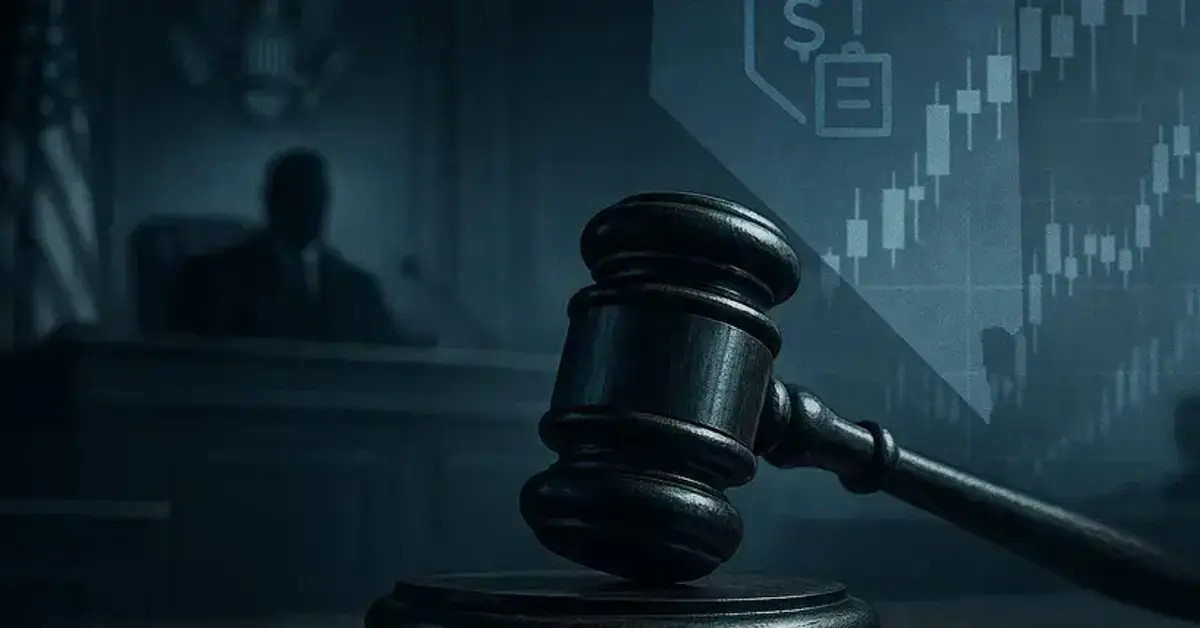Judge Blocks Kalshi From Offering Prediction Contracts in Nevada
A federal judge has ruled that prediction market operator Kalshi must stop offering event contracts in Nevada, siding with state gaming authorities.

US District Judge Andrew Gordon dissolved an injunction issued in April that had allowed Kalshi to keep operating while contesting a cease-and-desist order from Nevada regulators. In his decision, Gordon concluded that Kalshi’s argument for exclusive federal oversight by the Commodity Futures Trading Commission (CFTC) was untenable.
“[Kalshi’s] interpretation would require all sports betting across the country to come within the jurisdiction of the Commodity Futures Trading Commission (CFTC). That interpretation upsets decades of federalism regarding gaming regulation, is contrary to Congress’ intent… and cannot be sustained”, Gordon wrote.
The ruling follows a formal enforcement action from the Nevada Gaming Control Board earlier this year, which said Kalshi’s contracts – allowing wagers on the outcomes of real-world events – fell within the definition of gambling under Nevada law. The state demanded that Kalshi cease offering those products to customers in Nevada pending regulatory approval.
Kalshi has long maintained that its platform, which sells contracts tied to real-world events, is a federally regulated exchange under the Commodity Exchange Act and therefore falls within the CFTC’s exclusive jurisdiction - a position supported by an earlier ruling that favored Kalshi before being overturned in this latest decision. The company argued this created a uniform federal regime for prediction markets and insulated it from state-by-state gaming oversight.
Industry Reaction and Next Steps
Kalshi’s head of corporate development, Sara Slane, issued a statement saying the company would review the decision and pursue an appeal.
br>“As other courts have recognized, Kalshi is a regulated, nationwide exchange for real-world events, and it is subject to exclusive federal jurisdiction. It’s very different from what state-regulated sportsbooks and casinos offer their customers. We are evaluating the decision and anticipate making an appeal to the Ninth Circuit,” she said.
The dispute highlights a growing regulatory fault line between state gambling authorities and operators of novel wagering products. If Gordon’s ruling stands, other states with active gaming enforcement units – beginning with New Jersey and Nevada, which have historically taken a strict view on what constitutes gambling – may intensify scrutiny of prediction markets and similar financialized betting platforms.
Legal experts say the case could set an important precedent. A court ruling that affirms state regulatory authority over prediction contracts would expose operators to licensing requirements, consumer-protection obligations and taxation at the state level. Firms that have asserted federal preemption could face costly compliance changes or market exits in states that pursue enforcement.
For now, the immediate operational impact is limited to Nevada residents and accounts that the state can reach. Kalshi will have to suspend activity available to Nevada-based users while litigation continues, and the company has signaled it will seek relief at the US Court of Appeals for the Ninth Circuit.
Market participants and regulators will be watching the appeal closely. The CFTC, which has historically regulated futures and certain event contracts, has pursued a different enforcement and supervisory posture than state gambling commissions. A split in authority between federal and state regulators could ripple through the nascent prediction market sector, affecting liquidity, product design and where companies choose to do business.
More Regulation
Potential Ramifications for Regulators and Consumers
The case throws into sharper relief questions about consumer safeguards and the appropriate regulatory home for event-based markets. State gaming regulators typically enforce age and identity checks, responsible gambling measures and anti-money-laundering controls – requirements that federal oversight does not always mirror in the same form.
Whether Kalshi’s appeal succeeds, the ruling underscores the legal uncertainty facing firms that straddle financial market regulation and traditional gambling law. Regulators, operators and investors will now consider whether Congress or the courts should provide clearer rules to reconcile the competing regulatory regimes.
RELATED TOPICS: Regulation







Review this New Post
Leave a Comment
User Comments
Comments for Judge Blocks Kalshi From Offering Prediction Contracts in Nevada